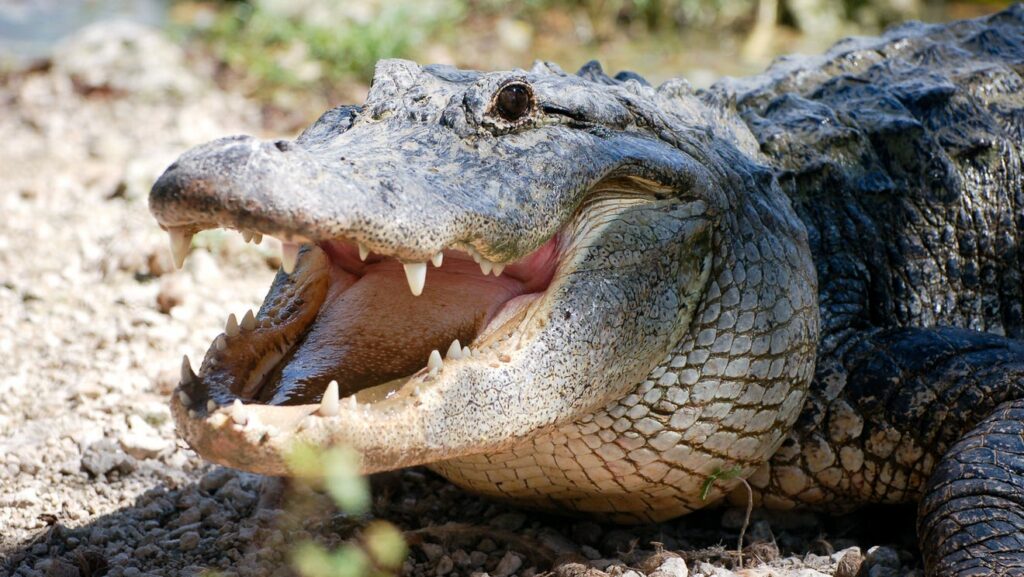Alligators are good moms, which is surprising as you can’t say the same for most reptiles. From the moment the mother lays her eggs to the time the former hatchlings leave their mother, the mother alligator always prioritizes the protection and nourishment of her babies.
Mother alligators keep their eggs in their mouth to open the stubborn eggs that seem ready to hatch by rolling the soon-to-be-hatchlings around their mouth.
What Are Alligators?
Alligators belong to the Crocodylia order. They’re sizeable carnivorous reptiles that are kindred to crocodiles, which is evident as most people don’t seem to know the difference between the two as they’re similar in appearance.
To distinguish between the two animals, you can use the shape of their snouts as an indicator to classify whether they’re alligators or crocodiles. Alligators have broad black-colored snouts with a rounded end, while crocodiles have thinner and pointier green-colored snouts. In addition to that, when American Alligators close their mouths, only their top teeth can be seen, while crocodiles show both teeth even with their jaws relaxed.
Alligators are only native to the United States and China. The American Alligator resides in the Southern area of the United States in Eastern Texas, Oklahoma, North Carolina, and Florida. The American Alligator lives among lakes, and rivers, and other slow-moving bodies of water. Contrarily, the Chinese Alligator lives within the Yangtze River and dwells in ponds found in agricultural areas.
With the capability to regulate their body temperature externally, alligators classify as cold-blooded animals. Additionally, they love to stay in the waters, not only to cool down or to remain warm, but it also makes prey-catching more convenient for them since they swim faster than they walk.
Alligators reproduce in June, and while male adults have many female partners to mate with, female adults only keep one partner per season. The sex of the egg will then be determined by the temperature of the alligator’s nest, with females being born in warmer temperatures and males in slightly colder temperatures. An 87.8 Fahrenheit temperature produces the same number of females and males. (Source: Live Science)
The Alligators’ Revered Maternal Instinct
Revered for their maternal instinct, female alligators always help their babies, given their naturally protective behavior. A month after June, when the female alligator detects her readiness to lay eggs, she constructs a nest made out of various plants, mud, and sticks. After the female alligators produce an average of ten to fifty eggs, they then cover the nest with more of their materials.
The mother alligator then protects her nest from predators. She can identify whether the eggs are ready with the aid of the eggs’ vocalization. When the eggs have hatched, the mother will carry the newly-hatched babies to the water in her mouth, letting them out and encouraging them to swim. If some eggs need a little more effort to hatch, the mother will carefully roll the eggs around her mouth to help them crack.
In the process of growing up, the baby alligators are likely to form a compact group that remains close with their mother; this behavior ranges from one to two years. Within these years, the baby alligators also depend on their mom for protection when faced with a threat.
The former baby alligators soon leave their mother after the 2-year span. (Source: Press Connects)
